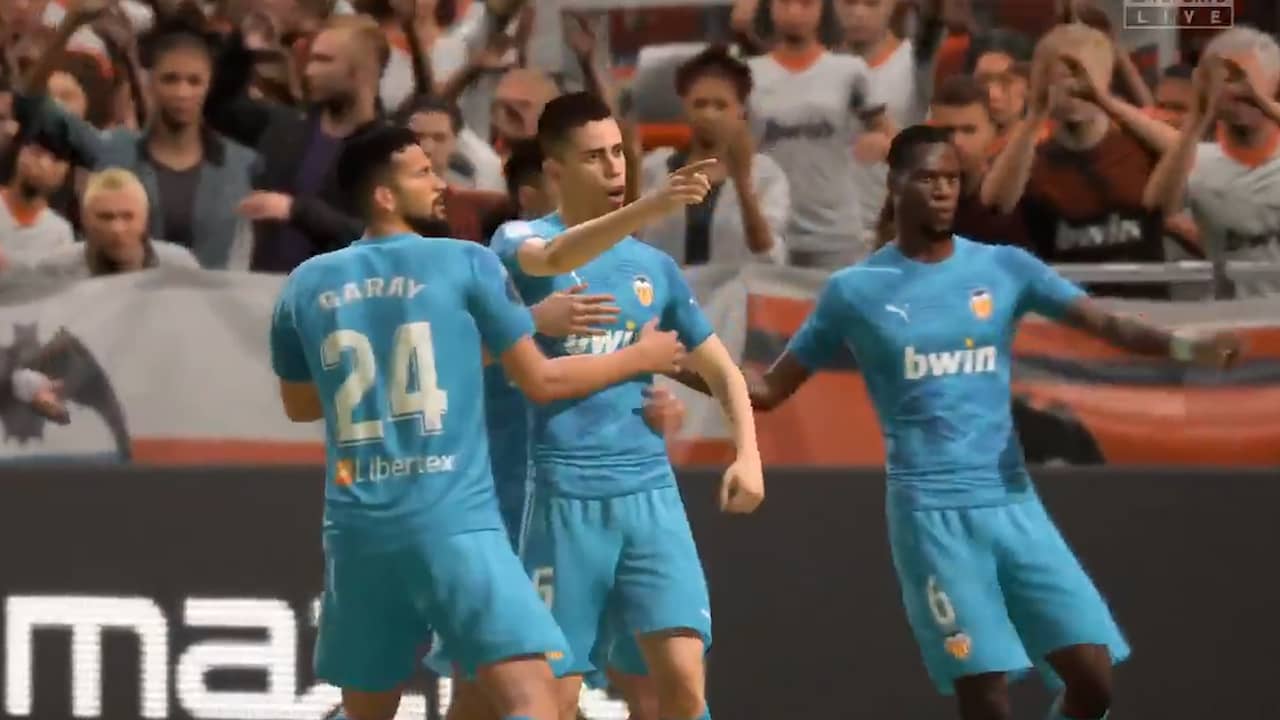The Netherlands Gaming Authority (Ksa) wants game maker Electronic Arts (EA) to impose a penalty of up to millions of euros because there are gambling elements in the football game FIFA to sit. There was a long silence in this ‘lootbox’ issue; What was that again?
1. What is a loot box?
The gaming industry uses loot boxes to make money, but the controversial method has sparked controversy several times in recent years.
It usually works like this: you pay with real money for an internal currency, which you can use to open a kind of virtual treasure chest. In that chest are a number of items, which are sometimes very valuable, but you do not know in advance which one you will get.
Often these are cosmetic additions, but in some games you can also get things from a loot box that influence the game. So know FIFA no treasure chests, but packs of cards. Whoever opens a package can get good football players that are very valuable in the Ultimate Team game mode.
The chance of getting really good football players out of such a loot box is small. This way, players are persuaded to buy more loot boxes.
2. Why is there so much controversy surrounding loot boxes?
Lots of games with loot boxes, such as FIFA, also target minors. Experts and organizations such as the Netherlands Gaming Authority fear that the visual fuss around opening a loot box and the element of surprise contribute to the cultivation of gambling addiction in young people.
Parents also run the risk of losing a lot of money, because it is often relatively simple to connect a credit card to the system. Children do not have to ask for permission to continue to spend money.
In addition, loot boxes are in certain cases simply in violation of the current legislation on online gambling. If the content of a loot box can be traded for real money, for example by selling it via an external site, then it is basically gambling with money.
A company needs a gambling license for this, which the Gaming Authority usually does not grant to game companies. As long as EA does not have such a license, the loot boxes are therefore illegal.
Finally, many gamers themselves are critical of loot boxes, especially if they can change the gameplay – pay to win, or pay to win. Players would thus be cheated money by game companies with psychological tricks.
3. Why does the Gaming Authority now specifically impose a penalty on EA?
After a long investigation, the Gaming Authority concluded in 2018 that loot boxes violate the law in certain cases. The Ksa wrote to various game companies for breaking the law. It would be four games.
It is not clear exactly which companies are involved: Ksa only makes the names of companies that commit a violation known if it is really necessary. In any case, it is about Valve, specifically the games Defense of the Ancients (DOTA) in Counter-Strike: Global Offensive (CS:GO).
Valve announced in 2018 that it had received letters from Ksa, and adjusted the loot boxes so that they could no longer be traded. The company thus complied with the law, but did protest.
Which FIFA the third game on the list seemed pretty clear at the time. EA didn’t flinch, however, and the Ultimate Team packs of player cards remained.
The gambling authority therefore decided last year to impose a penalty on the company and its Swiss subsidiary: a total of 500,000 euros for each week that the packages are still in their current form. FIFA sit, up to a maximum of 10 million euros. In addition, Ksa wanted to make this publicly available, to warn players.
EA challenged the decisions in court. The Ksa was right, but EA has announced to appeal. It will therefore take a while before the measure is implemented or not.
4. Why is Electronic Arts so persistent in loot boxes?
Electronic Arts makes a lot of money every year from FIFA Ultimate Team. All sports games of the company have such an Ultimate Team mode, and together they accounted for 1.27 billion euros in revenue last year. In fact, revenues from Ultimate Team modes made up 28 percent of the company’s total revenue in fiscal 2019, a “significant portion” of which was due to FIFA.
The company itself believes that FIFA Ultimate Team is not a game of chance. The loot boxes are just part of it, according to EA FIFA in which chance plays a role. And FIFA is a game of skill, not a game of chance.
The argument that FIFA is a game of chance, the company declines because players can know in advance what kind of footballers they can host.
The marketability is also disputed by the game giant: EA does not think it should get into problems because there happens to be a ‘black market’ where the content of loot boxes can be sold for real money. After all, there is no official way to convert virtual football players back into money.
5. What does the decision mean in concrete terms for players?
Not much at the moment. After all, the case is still in court.
It doesn’t seem very obvious that FIFA, of which a new volume appears every year, disappears completely from the Netherlands.
Belgium enforces stricter rules regarding loot boxes: you cannot offer a loot box in your game for real money. EA has removed FIFA points from the game, the internal currency that can be bought for real money. Belgian players can only buy loot boxes with points earned by playing the game.
FUT is also the basis of the eDivisie, the professional Dutch FIFA-competition. It is unclear whether a lootbox ban would affect the eDivisie if Ultimate Team becomes less economically interesting for EA.
Should EA also lose the appeal, chances are that the game in the Netherlands will simply be adjusted. Either by making the content of loot boxes no longer tradable – for example by making it impossible to exchange football players with other players – or by disabling the option to pay for loot boxes, just as in Belgium.
After such a court decision, EA would have three weeks to make adjustments. After that, the company is imposed a weekly penalty.
– .


